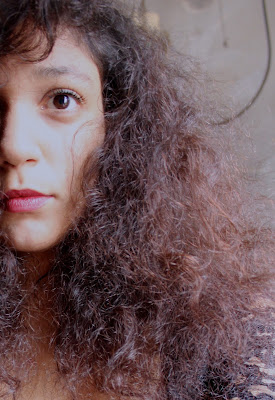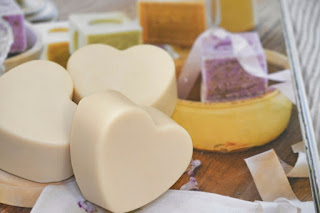Is your hair a little dull these days? Skin a little itchy? It may not be your hair or skin or the products you're using but your water.
In many parts of the world, water contains minerals such as calcium and magnesium, which are dissolved from rocks and soil as water passes through them. This type of water, known as hard water, can have several adverse effects on both our hair and skin.
 |
| Photo license: https://www.wikidata.org/wiki/Q19125117 Photo source: https://www.flickr.com/photos/shshthehutt/8098787849 |
Hard water can wreak havoc on hair, leaving it dry, brittle, and dull. The mineral deposits from hard water form a film on hair strands, making it difficult for moisture to penetrate. This lack of hydration leads to dryness, which in turn makes hair more prone to breakage and split ends.
The mineral buildup can also cause hair to appear dull and lifeless, interfering with light reflection and diminishing its shine. Additionally, hard water can make hair frizzy and tangled, as the mineral deposits prevent hair strands from aligning smoothly.
Hard water's effects extend beyond hair, affecting our skin as well. The mineral deposits can irritate the skin, leading to dryness and itchiness. Hard water also makes it more difficult for soap and shampoo to lather, resulting in a film of residue that can clog pores and cause breakouts.
For those with sensitive skin conditions like eczema or psoriasis, hard water can exacerbate these issues by further drying and irritating the skin.
Fortunately, there are steps you can take to protect your hair and skin from the detrimental effects of hard water.
To start with, don't shampoo every day and when you do, use a clarifying shampoo to remove mineral buildup and restore hair's natural shine. A clarifying shampoo is one that has a high level of surfactants. Surfactants are surface-active agents that reduce the surface tension of water. Soap is a type of surfactant called an emulsifier, which can cause two liquids to mix that normally wouldn't. Lora's Beauty Shampoos are excellent surfactants.
Condition your hair after every shampoo or as needed to replenish moisture and improve hair's elasticity and whenever possible, rinse your hair with filtered water to minimize mineral buildup.
Apple cider vinegar (ACV) can help remove mineral buildup from hard water. It can also rebalance your hair's pH and remove grease and product buildup. To make an apple cider rinse add one tablespoon apple cider vinegar to 2 cups distilled water. Apply to hair and leave on for a few minutes then rinse thoroughly with distilled water.
If your water is really hard, consider installing a water softener in your home or even an inexpensive water softener shower head to remove the excess minerals from your water supply.
Limit heat styling tools like blow dryers and straighteners, as these can further damage already dry and brittle hair and get regular trims to prevent split ends from traveling up the hair shaft and causing further damage.
For your skin it's best to moisturize regularly to combat dryness and prevent irritation caused by hard water. Also choose skin-friendly soaps (like Lora's Beauty) that are gentle on your skin and won't strip away essential oils.
By incorporating these measures into your hair and skincare routine, you can effectively combat the negative effects of hard water and maintain healthy, radiant hair and skin.
So, are you anxious to find out whether your water is hard? If you're on a municipality's water source, you can check your water's hardness here by entering your zip code. If you're on well water or you just want to check your water for yourself, this testing kit is inexpensive and easy to use.


